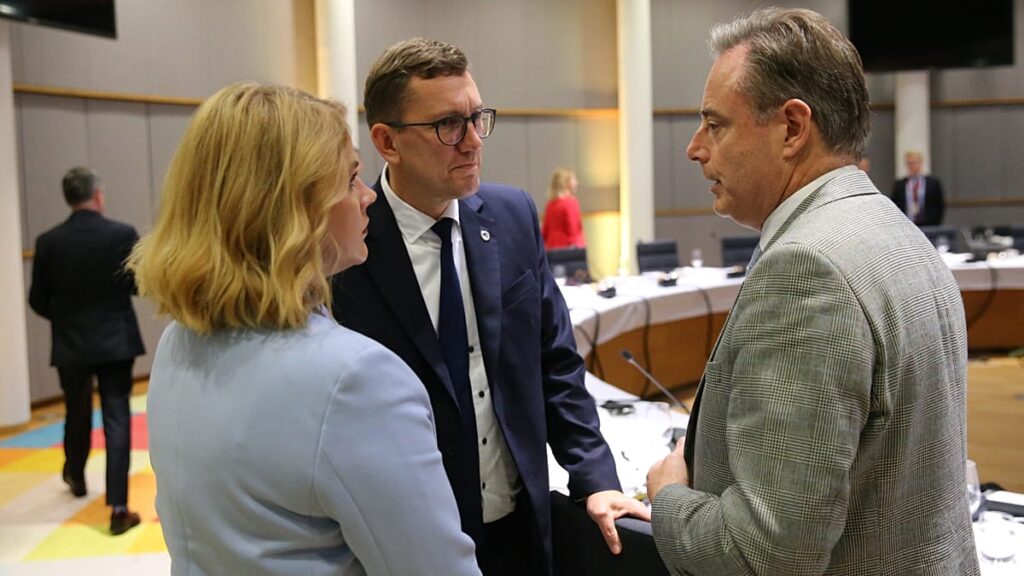Published on
EU officials and the Belgian government have failed to break the deadlock over the proposal utilising of immobilised Russian assets to fund Ukraine reconstruction over the next two years.
A technical meeting between the Commission and the offices of Prime Minister Bart de Wever and Foreign Minister Maxime Prévot took place on Friday.
According to sources close to the discussions there’s growing concern in the Belgian government at the lack of alternative proposals from the European Commission to using frozen Russian assets to fund Ukraine.
The EU is pushing for a plan to use €140 billion in frozen Russian assets held at Belgian financial repository, Euroclear.
Continued legal uncertainty over post-war scenario
But the Belgium government says the risks associated with the unprecedented operation are significant and is demanding legal guarantees that it won’t be held liable for unintended consequences. It also worries about Russian retaliation.
The Belgian state believes it’ll be weighed down in expensive legal processes should Russia or any associates sue for the assets at the end of the war.
The Commission is looking for ways to maintain Ukraine’s funding stable going into 2026 as the costs associated to the war mount without US support, which has declined since President Donald Trump took office.
EU leaders agreed in October to revise the matter and take a final decision in December after exploring alternatives. So far, the revision has not convinced the Belgian side.
“What we expect and was agreed at the European Council is that all possible options are worked out in detail and presented at the next Council”, the source told Euronews.
“All options must be on the table”, they said.
Belgian call for collective decision making
“For Belgium, it is essential that all options are explored. Every possible approach must be examined with rigour and transparency, to ensure the best solution”, the source said.
“To be frank, we are still waiting for the other options that the European Commission was meant to present, as agreed at the European Council” in October, they told Euronews.
Asked if the government is “frustrated” by the distinct lack of other options to explore, the source said “Not yet frustrated but the clock is ticking and we remain constructive.”
The EU needs to “collectively” take the best decision, they said.
“You cannot take the best decision if you don’t have all options with its positive and negative sides”, said the source.
If the plan fails, some options floated in formally include issuing joint debt, bilateral provisions from member states or a short-term bridge loan. Member states privately admit none of them would be as significant or stable as the reparations loan.
One European source said it still expected a deal to be found with the Belgians, but conceded time is running short until leaders gather in Brussels in December for their last European Council summit meeting of the year.
Read the full article here

